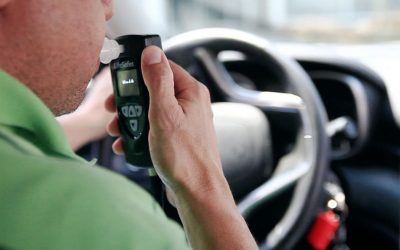
Rarely, it does happen. More often, it means some of the evidence against you will have to be thrown out. But it doesn’t work quite the way it does on TV or in the movies.
Most of us have heard of the so-called Miranda rights. This is really just another name for your constitutional rights under the 5th Amendment, which says you cannot be forced to incriminate yourself. Thanks to a famous Supreme Court case, Miranda v. Arizona, police are required to inform you of this right before they interrogate you. If they don’t, it can cause problems.
But there are a lot of misconceptions about these rights. To understand how they affect your case, we’ll cover what your Miranda warning is, when police have to read it, and what happens if they don’t.
The Miranda Warning
If you were to believe Law & Order, police have to read you your rights as soon as they cuff you, and they have to do it the same every time. This is not an accurate reflection of reality.
The Miranda decision did not prescribe exact wording for “reading your rights.” They’re read differently in different jurisdictions. A typical version of the warning is:
You have the right to remain silent and refuse to answer questions.
Anything you say may be used against you in a court of law.
You have the right to consult an attorney before speaking to the police and to have an attorney present during questioning now or in the future.
If you cannot afford an attorney, one will be appointed for you before any questioning if you wish.
If you decide to answer questions now without an attorney present, you will still have the right to stop answering at any time until you talk to an attorney.
Even if what the police said to you is different than this, it’s still valid as long as they follow local procedure. What’s important from a legal perspective is that you are informed of the main points—that you don’t have to answer questions, have a right to an attorney, and can stop answering questions at any time.
As a DUI defendant, there are two very important things to bear in mind about these rights:
- Even if you agree to answer questions at one point, you can stop at any time.
- Even if you didn’t request a lawyer at first, you can still request one at any time.
It’s generally best to decline to answer questions until you have a lawyer.
When Must Police Read You Your Rights?
Another misconception is that police have to read your warning as soon as they arrest you. There is no legal requirement for this.
Instead, police can read you your rights anytime after they’ve already arrested you, but before they interrogate you. Often, they’ll wait hours after the arrest to start asking you questions. So they may wait to read you your rights until this time, with witnesses present.
Police are not required to read you your rights when they first pull you over, or any time before they arrest you. In fact, if you haven’t been arrested yet, police can ask you as many questions as they like. If you’re pulled over and admit you were drinking, that statement will be used against you—and it’s perfectly legal.
What Happens If Police Don’t Read You Your Rights?
If this happens, it does not mean your case will be automatically thrown out. But it does work in your favor.
Here’s what to expect:
- You must inform your DUI defense lawyer right away.
- Your lawyer will find out which statements you made without having been advised of your rights.
- They will file a motion to have those statements excluded from evidence.
- If the judge approves the motion, the statements cannot be used against you.
At this point, a number of things could happen. The case against you may still be strong, and proceed anyway. Or it may be much weaker, and the prosecutor could offer a reduced charge or a lenient sentence. In a best case scenario your case could be dropped by the prosecution. This is rare in DUI cases, because there’s usually material evidence (like a breath test) they can still use.
Building the Strongest Defense
Getting evidence excluded always helps your case. It makes it harder to prosecute you. This is why it’s so important to have a good DUI defense lawyer examine your case and see if any of the evidence is questionable.
Our site exists to connect drivers like you with top DUI defense lawyers who offer a FREE consultation. Just fill out the form to the right and get your free, no obligation consultation today.






